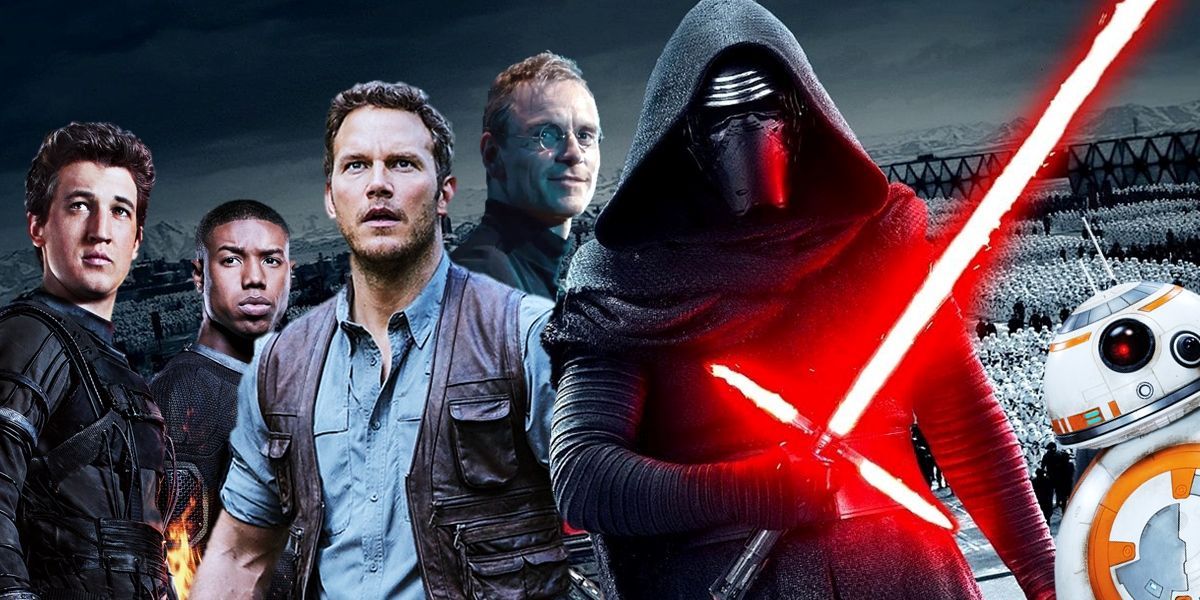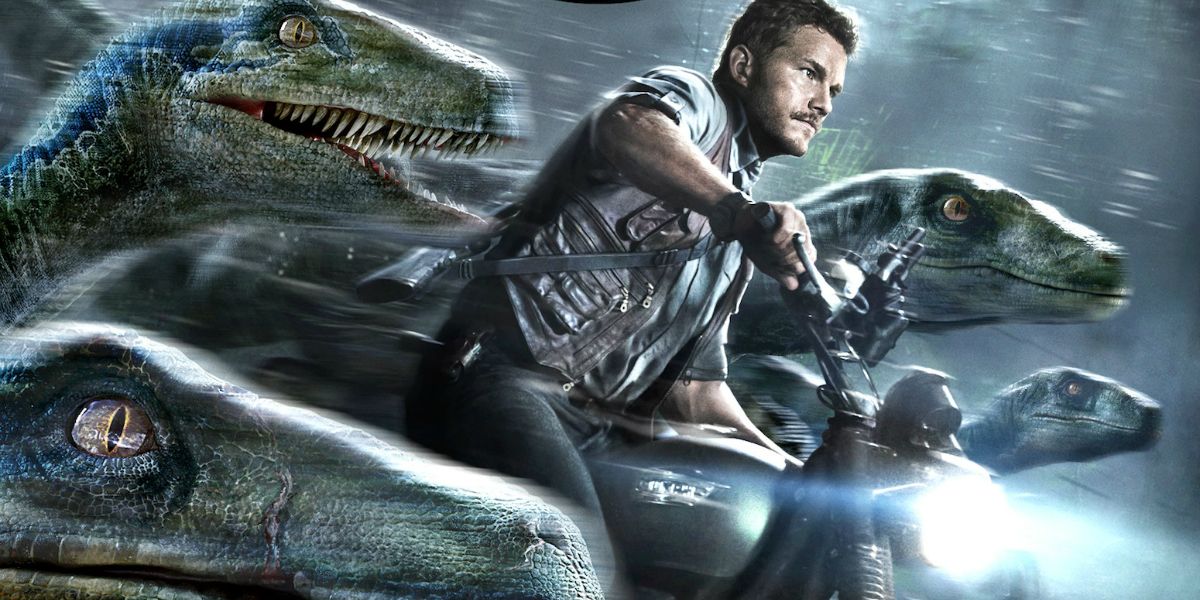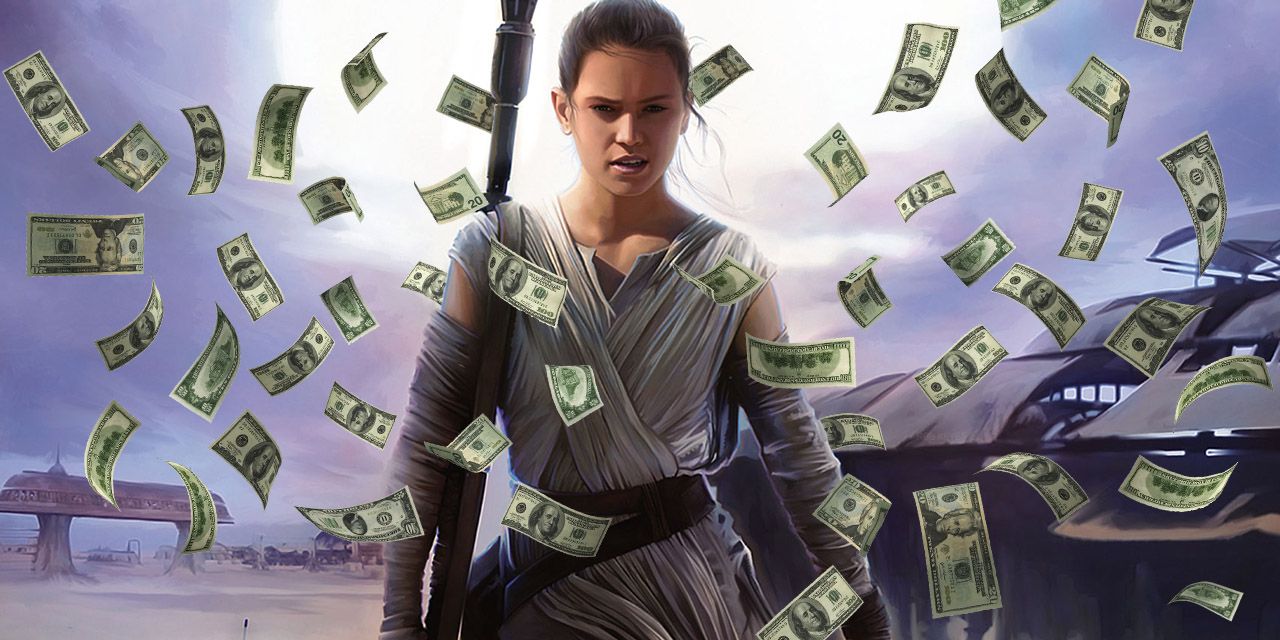Note: For the purposes of this article, we primarily use domestic box office numbers. All totals are as of December 30, 2015
-
Another year is in the books, and Hollywood found great success at the box office in 2015. As of the time of writing, the 688 films released domestically have collectively grossed $10.9 billion, which is a slight increase from the $10.3 billion the 702 movies from 2014 brought in. That's a 5.2 percent difference, illustrating that people were more inclined to go to the theater this year. It certainly helps when some of the most anticipated movies of all time come out.
As we did in 2013 and 2014, we're taking a step back to examine the noteworthy box office trends that took place over the past 12 months and examine what they mean for the industry moving forward. Whether they're a sign of things to come or just a one year fluke remains to be seen, but they all paint an interesting picture.
What's Old is New Again
2015 will go down as the year of the franchise revival. A plethora of projects - ranging from Star Wars: The Force Awakens to Creed - brought back classic Hollywood properties after years (or decades) of absence from the big screen. For the most part, these endeavors were largely beneficial. The commercial prowess of The Force Awakens has been well-documented by now; J.J. Abrams' film is setting new records every other day and has crossed $571.4 million in just 11 days of release. Its performance makes the strong showing of Jurassic World seem paltry by comparison. Still, Universal has to be more than thrilled with the return trip to Isla Nublar, which had the opening weekend record for six months and topped out at $652.2 million.
Even though they never got as high, the comebacks of both Mad Max ($153.6 million) and Rocky (Creed made $96.9 million) were impressive as well, showing that there's still an interest in various big name brands after all these years. However, not all of them were so lucky. Terminator: Genisys ($89.7 million) went so badly that Paramount is now rethinking the entire future of the franchise. And Fox would rather nobody talk about Fantastic Four ever again, since its $56.1 million intake was not even close to either of the maligned adaptations from the mid-2000s ($154.6 million and $131.9 million) despite years of inflation. Superheroes are most definitely in these days, but certain ones apparently don't have much pull.
There seemed to be a correlation between commercial performance and critical reception (more on that in a bit), indicating that just merely the return of a well-known series isn't enough to draw people in. At the same time, there's certainly a market for revivals that are done "right," so it'll be fascinating to see which ones are next in this trend. Universal will be looking to strike gold in 2016 with Bourne 5, which sees Matt Damon return to his iconic role nearly 10 years after The Bourne Ultimatum. If word-of-mouth is strong, then the film will most likely join the ranks of 2015's biggest hits. A lengthy delay between sequels can increase anticipation, and if it's good then that's even better.
Top Heavy Box Office
One look at 2015's box office chart makes it clear that not every studio had a year to remember. The top five grossing films domestically were all from Universal or Disney, and those two studios accounted for 70 percent of the top 10. Considering that they have the rights to several of the most popular franchises in the industry, this was to be expected. It also should be noted that a couple of studios dominating the top of the charts isn't anything new (2014 saw Disney and WB combine for 60 percent of the top 10), but this year seemed a little more top heavy than most. A select few became bona fide box office sensations, but most of the others had to settle for very good to solid numbers.
So far, only nine films have crossed $200 million domestically (though Spectre should get there soon at $196.4 million). Even if the latest James Bond film reaches that mark, 2014 saw 13 films gross more than $200 million. That may not seem like a big difference, but the last time this few movies made $200 million or more was 2011, when only seven pulled it off. The cumulative totals indicate that business as a whole was up, but that's mainly because more people went to see specific titles instead of everything that came out. Many records were broken in 2015, but it was hardly a well-rounded year.
This is most likely a case of circumstance than anything else. People aren't going to see a film because of the studio logo that plays before it, they're more attached to franchises. Universal and Disney arguably had the biggest tentpole events of the year under their roofs, so people were just going to be more inclined to check them out. Next year, Warner Bros. should be well off with Batman V Superman, Suicide Squad, and Fantastic Beasts and Where to Find Them, Paramount has Star Trek Beyond, and Universal is back with Bourne 5. And of course, Disney still has their annual Pixar, Marvel, and Star Wars releases. There may not be enough room in the top 10 for all of them, but there's a good chance a majority of them will hit $200 million.
Next: Did Reviews Affect The Box Office?
Reviews Dictate Box Office?
With only a handful of releases breaking the bank, there were more than a few movies that struggled to sell tickets. Many a franchise hopeful were DOA, including Terminator: Genisys ($89.7 million), Fantastic Four ($56.1 million), and The Man from U.N.C.L.E. ($45.4 million). In addition, films such as Pixels ($78.7 million), Jupiter Ascending ($47.3 million), Pan ($34.9 million), and In the Heart of the Sea ($22.5 million) failed to make much of an impression - despite their big budgets and star-studded casts. It seemed every other week, the term "underperformed" was being used to describe a new release. And that's probably putting it nicely for Victor Frankenstein ($5.7 million).
Most of the films named above had one other thing in common: reviews. Just about all of them ended up generating extremely negative word-of-mouth, which was a death blow to their commercial prospects. Viewers have so many entertainment options available to them, the allure of going to the movie theater is not as strong as it used to be. Consumers want to be sure that their investment in a movie is worth their time, so it seems only natural that "good" films would make more money than the "bad" ones. Moviegoers are always up for a big genre picture or installment in their favorite series, but in 2015 they let their wallets do the talking more than their fandom.
So what does this mean moving forward? Hopefully studios understand the message and see what earned big profits. People are still willing to go out to the movies, but they're perhaps becoming more selective when it comes to what they see. Obviously, it's impossible for every single film that comes out to be good, but ideally there's something more to this and there are fewer bad movies in the coming years. This year has shown what can happen when reaction to a film is positive, so it would be nice to see story and character take precedence in tentpole fare.
Box Office Impacts Awards Prospects
Heading into this Oscar season, Danny Boyle's Steve Jobs was thought of as one of the ones to beat. It starred Michael Fassbender in a juicy role, and he'd be saying dialogue from the mind of Aaron Sorkin. On paper, it was a definite contender, and the reaction out of various film festivals seemed to confirm the hype. Then, the biopic flopped big time commercially when it went wide in October ($17.7 million), and the tune immediately changed. Instead of emerging as a threat to win Best Picture, the film's been nearly absent from many of the Oscar precursors, with the cast and perhaps Sorkin's screenplay the only viable hopes it has for Academy Award nods - even though prestige films rarely make much at the box office.
On the flip side, nobody was predicting Ridley Scott's The Martian as a possible Best Picture candidate in the months leading up to its release. But after it scored universally positive reviews and posted a strong $54.3 million in its opening weekend, the door opened for it to become a player, and The Martian has been on the awards circuit ever since. Organizations like the National Board of Review, the American Film Institute, and the Golden Globes have all recognized it, and at this point it seems likely the Oscars will follow suit. While we'll never know for sure, one has to wonder if this would have happened had The Martian underwhelmed at the box office despite its widespread critical acclaim.
Nobody's saying the Oscars are going populist, but this year saw a number of commercial hits turn in for your consideration campaigns. The Martian has been joined on several "best of" lists by Mad Max: Fury Road, Inside Out, and Star Wars: The Force Awakens. This could very well be an anomaly as time passes on, but after the ratings fiasco last year's Academy Awards telecast saw, it wouldn't be the worst thing if Oscar expanded horizons and allowed some well-received blockbusters to join in on the awards season party. Of course, the indies are always going to be there with their "smaller" works that don't stand a chance of grossing high figures, but major studios hoping for awards glory may need to see their candidates become box office hits as well.
Conclusion
Those are just some of the trends we noticed at the box office during 2015. Our eyes will be on a number of developments as 2016 progresses. Can the DC Extended Universe rival the Marvel Cinematic Universe? How will Rogue One: A Star Wars Story fare with a cast of new characters? Will there be any surprise successes that take the industry by storm? We'll just have to find out.
As always, our list is not meant to be all-inclusive, so be sure to share some of your favorite box office trends from 2015 in the comments section below!






